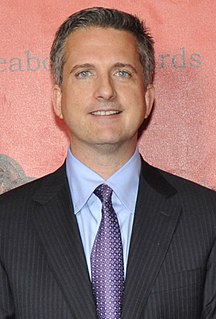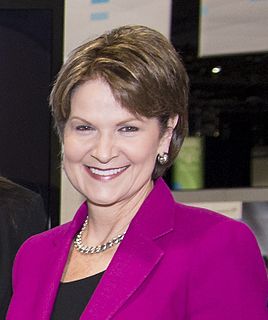A Quote by Paulo Freire
The trust of the people in the leaders reflects the confidence of the leaders in the people.
Quote Topics
Related Quotes
"Leadership" is a big topic today. We know that the world - nations and communities in addition to companies - needs more and better leaders. So I wanted to explore how leaders make a difference, how they can shift a negative cycle, turn around a losing organization, propel a team to victory when conditions aren't perfect. I saw that what leaders do is build confidence in advance of victory. Then the confidence they produce makes the hope of success turn into the reality of success, because people behave differently when they are surrounded by a culture of confidence.
Confidence is not lodged in people's brains, it comes from the support system that surrounds them. Let's not confuse confidence overall with just self-confidence. Self-confidence is only one part of confidence. People also need confidence in others - their colleagues and leaders - that they can count on them to do the right thing and not to let them down.
I think the characteristics of really effective leaders when people are frightened and depressed are the same qualities that leaders need when people are optimistic. The difference is when people are frightened the need for these few qualities becomes much stronger because frightened people are desperate to have someone they can trust and believe in and who seems to be able to create a better future.
Micromanaging erodes people's confidence, making them overly dependennt on their leaders. Well-meaning leaders inadvertently sabotage their teams by rushing to the rescue and offering too much help. A leader needs to balance assistance with wu wei, backing off long enough to let people learn from their mistakes and develop competence.
When leaders claim that God bypasses their followers and speaks directly to them, they greatly diminish all God does through the lives of believers.Leaders who begrudge people the opportunity to seek God themselves and who do not actively teach their people how to hear God's voice have disqualified themselves as spiritual leaders.
In the long run, we will need many more African-American, Latino, and Native American leaders, and leaders from low-income communities, who can bring additional insight and a deeply grounded sense of urgency, and who are the most likely to inspire the necessary trust and engagement among students' parents and community leaders.
Trust is perhaps the most critical single building block underlying effectiveness. Without trust leaders do not have followers. Without trust, leaders are impotent despite great rhetoric or splendid ideas. Trust rests on the belief among followers that the leader is transparent: What you see is what there is. Trust means followers believe there is no duplicity; no manipulation just to satisfy the leader's ego. Very simply: The effective leader is transparent; that's why that person is trusted.


































